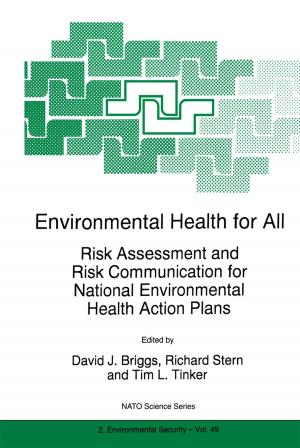Clinical Hemorheology
Applications in Cardiovascular and Hematological Disease, Diabetes, Surgery and Gynecology
Nonfiction, Health & Well Being, Medical, Specialties, Internal Medicine, Hematology, Cardiology| Author: | ISBN: | 9789400942851 | |
| Publisher: | Springer Netherlands | Publication: | December 6, 2012 |
| Imprint: | Springer | Language: | English |
| Author: | |
| ISBN: | 9789400942851 |
| Publisher: | Springer Netherlands |
| Publication: | December 6, 2012 |
| Imprint: | Springer |
| Language: | English |
The task the editors have set themselves is to survey the field of clinical hemorheology from basic principles to up-to-date research. It is only in a new science like this that it is possible to span the whole field in a book of this size. Hemorheology, as a new approach to the study and management of a wide range of circulatory diseases, is now beginning to appear with increasing frequency in general as well as specialized medical journals. Hemorheology is also just beginning to creep into the undergraduate medical curriculum. Therefore, the majority of graduate doctors are unequipped to assess the place of hemorheology in the overall framework of circulatory physiology and pathology or to assess its relevance to their everyday practice. It is hoped that this book will fill this gap. The approach of the book is interdisciplinary. The first part deals with basic principles of blood flow, circulation and hemorheology. It has been written with the general doctor in mind, who has no special knowledge of hemodynamics and rheological concepts, terminology or methodology. To maintain the emphasis on practical clinical applications, all the chapters in the second part of the book have been written by clinical specialists practicing in the individual areas of disease. The book is so designed that clinicians may be able to read the relevant chapters in the second part of the book in isolation, using the basic science aspects contained in the first part of the book as reference chapters.
The task the editors have set themselves is to survey the field of clinical hemorheology from basic principles to up-to-date research. It is only in a new science like this that it is possible to span the whole field in a book of this size. Hemorheology, as a new approach to the study and management of a wide range of circulatory diseases, is now beginning to appear with increasing frequency in general as well as specialized medical journals. Hemorheology is also just beginning to creep into the undergraduate medical curriculum. Therefore, the majority of graduate doctors are unequipped to assess the place of hemorheology in the overall framework of circulatory physiology and pathology or to assess its relevance to their everyday practice. It is hoped that this book will fill this gap. The approach of the book is interdisciplinary. The first part deals with basic principles of blood flow, circulation and hemorheology. It has been written with the general doctor in mind, who has no special knowledge of hemodynamics and rheological concepts, terminology or methodology. To maintain the emphasis on practical clinical applications, all the chapters in the second part of the book have been written by clinical specialists practicing in the individual areas of disease. The book is so designed that clinicians may be able to read the relevant chapters in the second part of the book in isolation, using the basic science aspects contained in the first part of the book as reference chapters.















